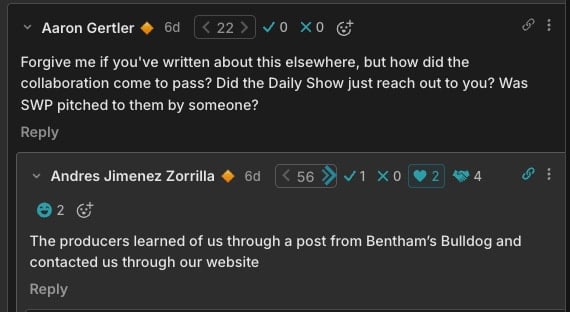A while ago there was a thread about ideas for new projects for large EA funders to back. We had a similar email thread here at the Centre for Effective Altruism (CEA) and the Future of Humanity Institute (FHI) at Oxford, about 'blue sky funding opportunities'. As the Christmas giving season approaches, I thought I would mention a few of my favourites. I am happy to field questions about the details in the comments section, inasmuch as I know them.
1. Put money in an EA 'venture' fund that publicly announces it is seeking to fund new projects with particular characteristics (e.g. scaling a demonstrated anti-poverty intervention). Use this 'money on the table' to encourage more entrepreneurs to come forward with early-stage business plans. Otherwise help to connect donors with founders. More or less the same idea is mentioned here.
- There is a >50% chance CEA will launch something like this in the coming year.
2. Offer prizes for people who have achieved awesome things to both help and encourage them to continue achieving awesome things.
3. Hire a full or part-time Personal Assistant for Prof Nick Bostrom, so he can spend as much time as possible doing follow-up research for his popular book, Superintelligence. This would also indirectly free up staff time for project managers and researchers in the rest of FHI.
- CEA would try to recruit someone suitable for this role if it could be funded, but there may not be anyone who would meet all the requirements.
4. Fund a founding employee for 'CEA USA'. This person would:
- Develop a strategy for how CEA USA can be most useful to the movement. The Board has met and considered a couple of options so far.
- Simultaneously, start cultivating a donor base who might support that expansion. If donors aren't convinced, go back and edit the strategy, as that would be a bad sign.
- Do the remaining operations necessary for CEA USA to receive donations in a variety of ways; hire people; do payroll; meet its legal reporting requirements; set up a basic website, and so on.
The board would probably approve a recruitment process to try to find someone suitable for this position if funds were available.
5. Fund a professional fundraiser to raise money for CEA/FHI/CSER/FLI. We have not yet found a good candidate for this, but if we were offering closer to market wages (£40-60,000p.a.) we might find someone suitable to bring us expertise fundraising from major donors.
- If you want to fund this for CEA, talk to me. If you want to fund this for FHI, talk to Cecilia Tilli. If you want to fund this for CSER talk to Sean O'Heigeartaigh.
Possible individual projects you could already fund by giving to CEA
The following you could fund by giving to CEA. Message me if you are interested, so I can send you more information on how much we would need to raise to press ahead with these projects.
1. We are raising money to help market both William MacAskill's book Doing Good Better, and Peter Singer's book, The Most Good You Can Do. If funds are available, we will hire a professional book promotion company to do this. Outputs could include, depending on the amount of money raised: websites for the books; launch events; more media appearances booked; more opportunities to write op-eds based on the books' content; articles placed in newspapers connecting the books to current events; potentially even a promotional video.
2. CEA could hire a contractor to work on a set of podcasts about effective altruism. If we liked them, we could then produce more.
3. Test out mainstream pamphleting about effective altruism to see how many, e.g. Giving What We Can members, this can create.
4. Giving What We Can now has almost 700 members. The majority of our resources go towards attracting new members, as we see this as the most valuable use of time. Some of the work of our Director of Community goes towards deepening engagement with existing members. However, we could now usefully dedicate the Director of Community to just constantly talk to existing members - splitting out the role of talking to potential new members. What would this Director of Community do?
- Speak to, or personally email, every member at least once a year. Ideally build a personal relationship with them in the process.
- Enquire about their giving - Are they fulfilling the pledge? What is holding them back from giving more? Where are they giving? Are they aware of the latest recommendations, and the reasons for them?
- In some cases, give them advice on tax deductibility, our trust, other members who live near them, which charity most aligns with their values, and so on.
- In some cases, let them know about other activities in the effective altruist community they might want to look into, like 80,000 Hours, the Open Philanthropy Project, and so on.
- In the process of doing all this, drive up reporting rates for our annual giving survey. Each year we get data from (a different) 50% of members, after chasing them a bunch. This makes it hard to know how much money we are moving, and what share are dropping out each year.
I also think that merely speaking regularly with someone from Giving What We Can would make members more likely to stick with the pledge long term.




Thanks for taking the time to put this together, Rob. I'm interested in the pamphleting angle, especially as someone who has studied pro-veg pamphleting in length and who is researching it further. I'd be interested in hearing if you have any plans to study EA pamphleting in any amount of depth.